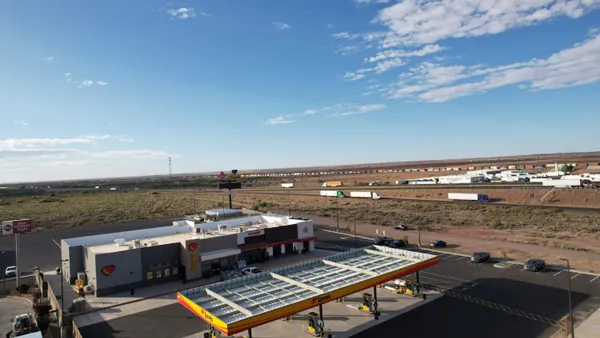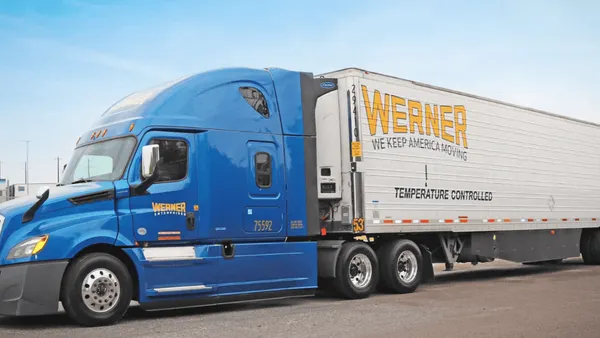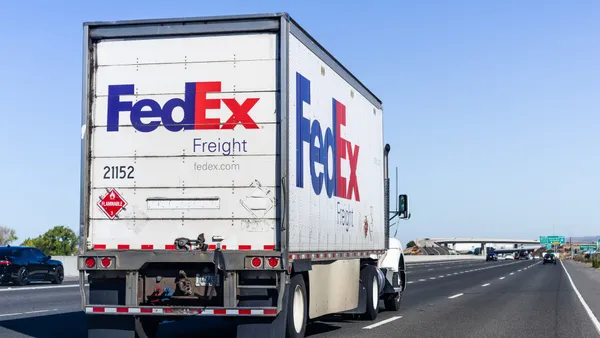In 1978, when I was just a sales rookie, I asked one of my CEO customers for a few minutes of his time to discuss our business relationship.
"LTL is less than 5% of my transportation, if that," he said. "Why would I want to spend my time talking about LTL, when my TL and package spends are so much higher?"
Tail between my legs, hat in hand, I sulked away. It was an embarrassing encounter — but enlightening, nonetheless.
For many years to come, I would feel that the LTL industry was under-appreciated. Some Wall Street analysts will tell you that LTL stocks just aren't that exciting. I saw one analyst describe them as "mediocre." Main Street will tell you that it hates the big, noisy, frightening trucks impeding their progress.
Sure, it ain't the most glamorous industry. But it sure ain't mediocre in terms of societal impact.
The gnawing question was, "Why are our efforts not recognized and appreciated beyond the fleeting recognition when a critical shipment is delivered, against all odds, to save a shipper's client?"
Dwarfed by TL volumes, LTLs were — and still are — consistently taken for granted, as if goods just magically appear on the shelves. Grey Poupon doesn't arrive in a limo.
Missed opportunities
LTLs have had golden opportunities to create a better public image. But the opportunities were either ignored or somehow escaped our notice.
I'm talking about the Teamster Union strikes in '79 and '94, not to mention the environments created by the rumors of strike, the last being in 2018 when the good ole' Teamsters and UPS negotiations talks were stalled.
There's no greater impetus to change than fear and pain, and those work stoppages brought us much of both. I would have expected us to take carriers' and customers' experiences from those times and use them to forge stronger and more efficient client relationships.
Instead, we allowed shippers and receivers to drift quickly back to the old behaviors that ignored our worth and value to their supply chains. The strikes should have provided sufficient impetus to create a lasting public awareness of the important contributions of LTL carriers. But, sadly (at least to me) they didn't.
Grey Poupon doesn't arrive in a limo.

But I've come to understand that our reputation isn't the fault of the businesses we serve. It's LTL's fault and ours alone. We are terrible at tooting our own horns.
You expedite a critical shipment and deliver it early. Normally, the customer says, "thank you very much," and you say, "You're welcome." But you should be asking, "What impact did that successful early delivery have on your client relationship, on your sales, on your organization and on you personally?"
Perhaps your customers will be more receptive to collaboration if they understand the potential pain of supply chain failure if they do otherwise. And, believe me, customers are always fearful about supply chain failures — even outside the chaos happening now — hence the huge investments in software systems.
We also miss opportunities daily by the thousands. As a matter of fact, you don't have to be terribly keen at observation to see instances where we actually contribute to an image that is actually worse than mediocre.
In the theatre of public perception
To be blunt, we could be so much more respectful of John Q. Public and Susie Q. Public — you know, those folks with whom we share the roads and highways.
It happens too frequently that even I feel disrespected when one of your pickup and delivery units suddenly changes lanes sans the signal, tailgates me or roars through a yellow light. We can't hide behind the fact that most motor vehicle accidents are the fault of the car, because that matters little in the theatre of public perception.
And so, our greatest opportunities to prove LTLs are deserving of a perception greater than mediocre lies with the local facilities. In this theatre, everyone shares the spotlight, and everyone has a role:
- Dock workers handling consignments with care and precision — damage-free.
- Drivers being safe and courteous to the other vehicles on city streets and dealing with customers professionally at all times.
- Dispatchers telling the truth, even when the truth isn't convenient.
- Office staff being patient and respectful when they deal with customers who, quite often, are unfamiliar with how trucking operations work. (What do you mean you can't send four people to deliver my stuff upstairs to the fourth floor?!)
- Sales people understanding the customer's needs and ensuring the customer is aware of the value they gain through the relationship.
- The center manager leading a customer-focused staff and continuously educating them on ways to become ever more efficient in their jobs.
Focus on these things (and I'm sure you can come up with more) to create a winning image of your company and our industry. It's that simple.
With supply chain gridlock in every news report you hear or read, we have another opportunity to prove our value, do we not? A big one, in my estimation.
As Winston Churchill famously said: "Never let a good crisis go to waste."
Lanny Fleming began his career with Roadway Express in 1977. He was with American Freightways and FedEx Freight for 20 years, and UPS Freight for six. Views don't necessarily represent those of Transport Dive.











